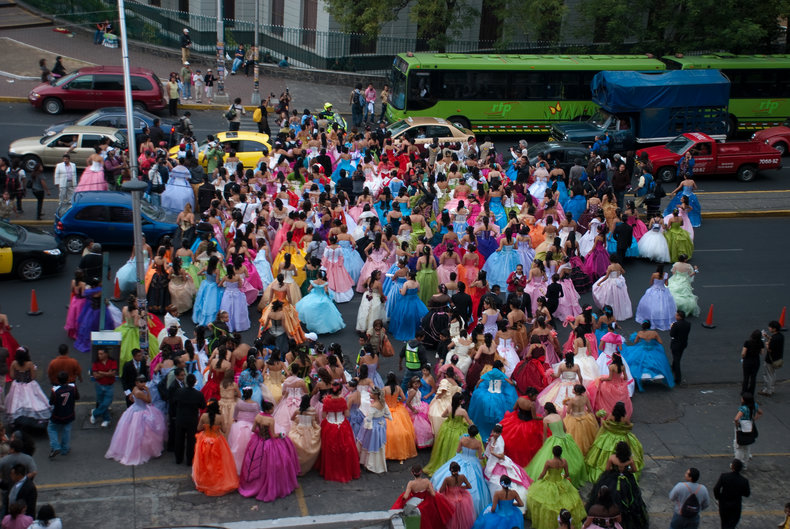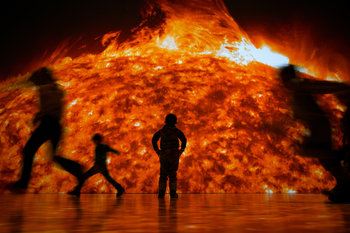
Physics
Self-organization is a common process in the universe. For example, the growth of snowflakes that exhibit complex patterns. This is the result of a chaotic process of supercooled water droplets colliding and freezing as they fall from the sky.
Variety
Self-organization tends to produce variety as opposed to central planning where a single entity designs things. For example, a capitalist system is largely self-organizing whereby firms decide on their own strategy without input from the government. This produces an incredible variety of goods as compared to a centrally planned economy.
Chaos
Chaos is the ability of a small part of a system to change the entire future of that system. This may sound disorderly but creates much order in practice. For example, a single member of society who invents something that all of society finds useful and beneficial to quality of life.
Protests
Protests are an examples of chaos whereby people can self-organize to challenge and potentially change systems as large as entire governments.
Molecular Self Assembly
A chemical process whereby molecules self-organize into a predictable structure without outside control. There is interest in using this process to manufacturer nanotechnology and nanomaterials.Biology
Biological systems commonly self-organize. It is also common for species to exhibit social behavior whereby individuals coordinate at a local level to achieve a common goal. This can be seen in a flock of birds, school of fish and the ability of ants to organize work.
Computing
Self-organization is a common technique for implementing software. For example, self-organizing local networks such as a mobile game system that can automatically network with nearby game systems to implement a multiplayer experience.Robotics
Self-organization is the basis for swarm robotics, a technique that involves small robots that cooperate to complete work as opposed to being centrally controlled.Leadership
Leadership is a human process of self-organization whereby any group of people that spend enough time together will typically develop leaders who will coordinate efforts and influence people to follow a unified path.Social
People commonly self-organize without a leader. For example, in many cultures people will naturally form a line to implement a system of fairness when waiting for something.
Education
Open-ended teamwork in education. For example, a group science fair project where the topic is decided by the team.
Emergence
Emergence is a process that occurs without a central plan. In nature, this is the rule and not the exception. This is also very common in human societies. For example, a town that emerges as residents build structures without any government planning authority controlling things. This tends to produce more beautiful cities than centrally planned towns that are less practice but perhaps more human.
Organizational Structure
Organizational structures can be planned from the top down. However, with time they tend to be shaped by politics as leaders emerge and gain authority and control in a self-organized process of emergence.Teams
If you give teams a set of measurable objectives and hold them to a set of constraints such as a schedule and budget, they can potentially self-organize to achieve these objectives without any further direction.| Overview: Self-Organization | ||
Type | ||
Definition | A process whereby global order arises from interactions between local parts. | |
Related Concepts | ||


















































